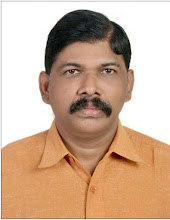The magic of cinema is actually man-made, something director Udita Bhargava realised while studying filmmaking. Soon she decided to turn magician herself, with her debut film, Dust (2019), which explored love and loss in India’s Naxal belt. Starring Vinay Pathak, Abu Bakr Golu, Kalyanee Mulay and Amrita Bagchi, the movie, which streams on Mubi, is about Maoist insurgency in India. In an interaction with the Cinema Journal, Udita emphasises more on this Indo-German production and why she chose to make it. Excerpts:
What was the driving force behind the making of Dust?
While studying films in Berlin, I was constantly being asked where I hailed from. I replied saying that I was from a city in central India called Indore. That would inevitably produce a snigger and a joke, ‘indoor or outdoor?’ In response to that joke, I decided to make a film which spoke about my origin, the place I was from. Dust is my graduation feature, a film that tells the story of where I belong to.
Tell us about your journey as a filmmaker.
I studied English literature at St. Stephen's College, Delhi University. Back then, without articulating the wish publicly, I aspired to become a writer. Afterwards, I joined the Centre for Mass Communications at Jamia Millia Islamia University, with the idea of working as a professional photojournalist after securing my Master’s degree. At Jamia, I encountered filmmaking and realised, for the first time, that films are made by people’s hard work and they do not just magically appear on the screen. This revelation changed my trajectory of learning, thinking and executing ideas. I finally decided to become a filmmaker!
The film deals with Maoist insurgence. Any particular reason to choose this topic?
Dust revolves around the crises of lives in a landscape, which has been ripped apart by conflict that influenced and shaped the lives of many. Even an individual born very far away from the site of conflict could not escape. I would like to point out that Dust does not refer to Maoists anywhere. Unfortunately ‘Maoist’ and ‘Naxal’ are terms that are being used interchangeably today to delegitimise and demonise movements of resistance and individuals related to those movements. I was interested in these movements and drew inspiration from them to create a fictional story that touched upon the grim and confusing reality on the ground in large parts of India.
Also Read: The theatre will definitely get back its loyal audience: Supriya Pathak
How have you handled the feeling of alienation in the film?
I think the viewer can experience it strongly and can identify with the alienation that David [played by Morten Holst] feels when he arrives in India to look for the traces of Mumtaz’s [played by Amrita Bagchi] world. Additionally, the film speaks of another kind of alienation: The one experienced when the rights of the people are not acknowledged, and when they are pushed to the margins and made more vulnerable in an uncaring harsh environment.
How was it working with a veteran actor like Vinay Pathak?
Working with veteran actors teaches you to be professional. Vinay was a great boon to Dust! Along with Abu Bakr Golu (Krishna), he was our lucky mascot. He supported us and had a nurturing attitude towards the team, especially the foreign members who were new to India and to our tough shooting environment.
You have also worked for several international films. What skills did you pick up in the process?
I have worked as an AC (Assistant Camera) before. Working on film sets, I have learnt to be quick and efficient. Since every minute of filming costs a large amount of money, one has to always be on the go. I have also learnt the skill of perseverance, to not give up until a shot is done because you will probably never get a second chance to shoot it!
Was it tricky to make a film like this in India?
Logistically, yes, it is very tricky to make a film like this. We shot on real locations and not inside a studio. That presents several challenges as one cannot control the shooting environment completely. For example, we were usually surrounded by huge crowds as we filmed. One feels daunted at the start as large sections of society are growing increasingly intolerant, especially towards women who take a stand that goes against the narrow nationalism that is currently being promoted in today’s India.
Do you feel a film that has completed the festival rounds is good for an OTT audience?
I opted for an OTT release because for an independent film like mine, OTT offers a chance to bring the film to a wider audience. A theatre release requires extensive marketing. It requires massive infrastructure that films like mine cannot afford. Plus, the theatres are either closed or working at a low capacity at the moment. I cannot say if a film that has completed its festival round suits an OTT audience better. However, festivals do provide an opportunity to create a conversation around a film.
Vinay Pathak on his character in Dust

“When I first read the script, I was so impressed because, let alone the film, we do not get to read such stories set in the background. I was more than happy to be a part of the story. My character is layered...I’m playing the role of middle-aged doctor, and I’m also a secret organisation leader where I train kids to make them naxal soldiers to fight for their rights. On set I’m a revolutionary, but also a leader of a secret mission, training the children who are unaware of the meaning of revolution. The character I play is not like me at all. We are privileged, but I could understand what that kind of character might be going through in his head.”
source https://www.freepressjournal.in/entertainment/film-festivals-provide-an-opportunity-to-create-a-conversation-around-a-film-says-dust-director-udita-bhargava






























0 comments:
Post a Comment